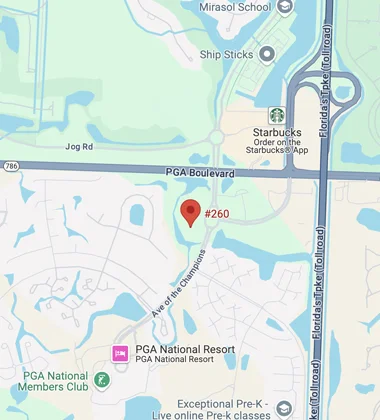What Are the Differences Between the EEOC and FCHR?

If you experienced any kind of adverse or unfair treatment in a recent job interview or in your current employment situation, you may be considering the possibility of filing an employment discrimination claim. The first thing you should do is to speak with a South Florida employment discrimination attorney who can help you to determine whether you experienced unlawful discrimination under state or federal law. Once you know if the behavior you experienced violated state and/or federal law, you will then need to determine whether to file a charge or a claim with the Equal Employment Opportunity Commission (EEOC) or the Florida Commission on Human Relations (FCHR).
What are the differences between the EEOC and the FCHR? And when should you file a claim with the EEOC rather than the FCHR, or vice versa? Our Palm beach Gardens employment discrimination attorney can provide you with more information.
The EEOC Handles Federal Claims and the FCHR Handles State Claims
The primary distinction to note between the EEOC and the FCHR is that the EEOC handles federal employment discrimination claims while the FCHR handles Florida state employment discrimination claims. Yet, you might be wondering, what does that mean?
When an employment discrimination claim arises under a federal law, then you will file what is known as a charge with the EEOC. When an employment discrimination claim arises under state law, then you will file a claim with the FCHR.
Laws the EEOC Enforces Versus Law Enforced by the FCHR
Some of the most common federal laws under which a job applicant or an employee may file a charge with the EEOC include the following:
- Title VII of the Civil Rights Act of 1964;
- Title I of the Americans with Disabilities Act of 1990 (ADA);
- Age Discrimination in Employment Act of 1967 (ADEA); or
- Title II of the Genetic Information Nondiscrimination Act of 2008 (GINA).
Typically, the EEOC will receive a charge filed by a job applicant or an employee, and then it will review the charge in an extended process to determine whether the job applicant or employee can move forward with a lawsuit.
The FCHR does not enforce a range of laws as the EEOC does. Rather, it enforces the Florida Civil Rights Act. When a job applicant or employee files a charge with the FCHR, the FCHR assesses the charge. In some cases, cross-filing can occur with the EEOC and the FCHR, in which case both would oversee a charge.
Contact a Palm Beach Gardens Employment Discrimination Lawyer Today
Whether you may soon be filing an employment discrimination charge with the EEOC under federal law or with the FCHR under state law, it is important to seek legal assistance with your claim. Employment discrimination cases can be complex, and many forms of discrimination in the workplace can be difficult to prove without evidence carefully gathered by your attorney. To find out more about filing a claim, you should get in touch with one of the experienced Palm Beach Gardens employment discrimination lawyers at Sconzo Law Office as soon as possible. We can discuss the details of your case with you and help you to move forward in the process of filing a discrimination claim and seeking a remedy.
Sources:
eeoc.gov/
fchr.myflorida.com/

